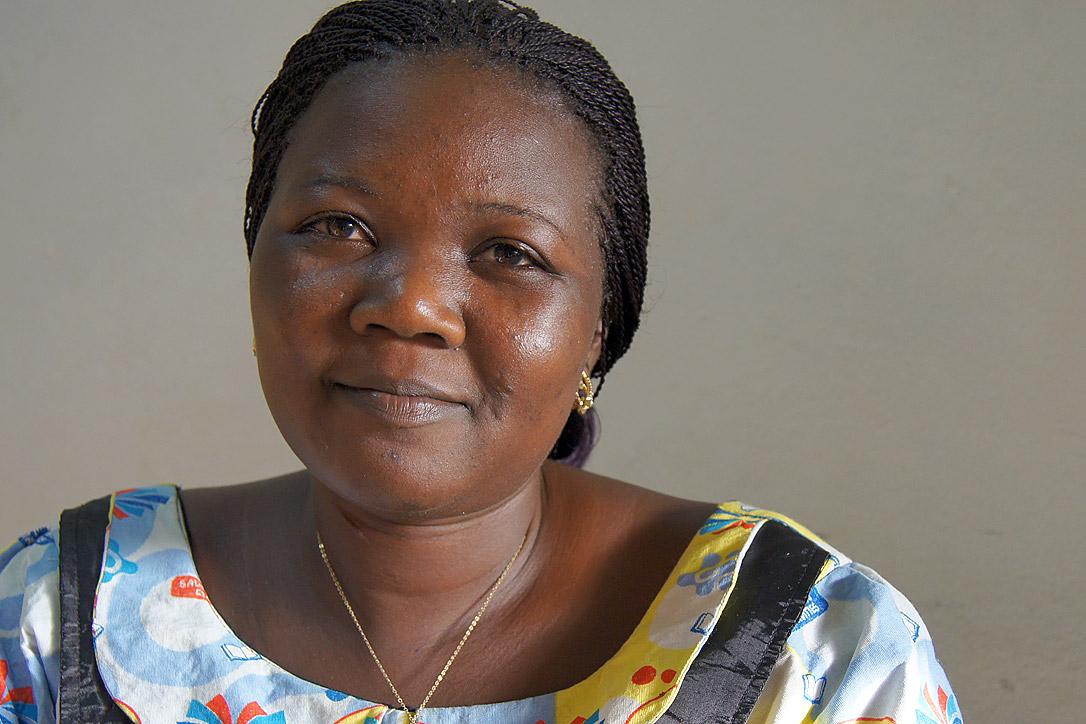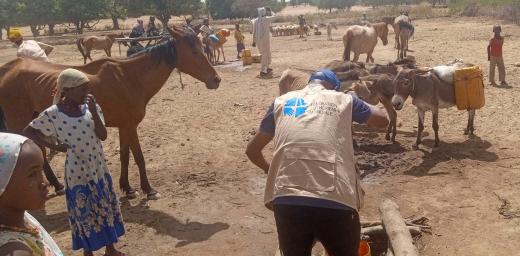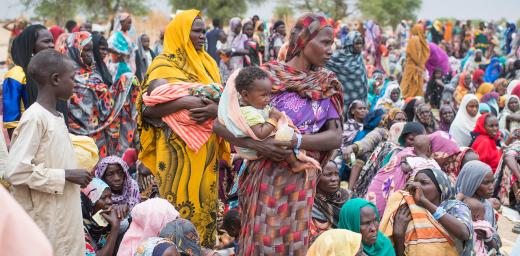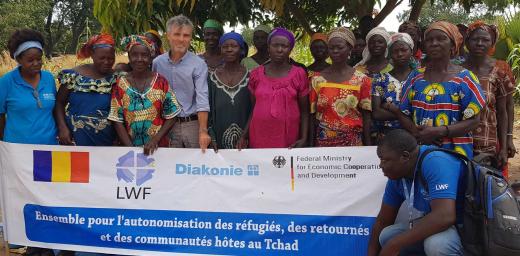Without psychosocial support, everything lacks foundation

Deena Houmhisna, a psychosocial worker with LWF Chad, supports people who have seen unimaginable things. Photo: LWF Chad
“It is difficult to see so many people in need and not to be able to help them.”
GORE, Chad/ GENEVA – 12 August (LWI) - The people Deena Houmhisna works with have seen unimaginable things. “They have been in a war,” the young woman says. “They have seen family members being killed. They lost everything. I met a child whose father´s throat was cut – in front of her. You cannot leave that child alone after it has witnessed such a thing.”
Houmhisna has worked for the Lutheran World Federation (LWF) since 2008, most of the time in psychosocial support. Currently she is assigned to the four refugee camps and their host communities in Gore, southern Chad. The camps are about 60km from the border with the Central African Republic (CAR). All their residents have been affected by the CAR conflict.
Trauma and violence
Some have been in Gore for more than 10 years. Some have recently arrived. A number are returnees: people born in Chad but who migrated to CAR several generations ago. When the conflict began, the predominantly Christian anti-Balaka militia started persecuting and killing them because they were Muslim.
“There were massacres,” Houmhisna says. “The militia told the people that they were not from the Central African Republic and should go back to where they belonged. So they left for a country which they did not know anymore.”
In the refugee settlements prospects are bleak and past trauma creates new stress. In a report on psychosocial activities in 2014, LWF staff said they had observed many cases of untreated illnesses and of physical violations that had not been tended to.
In many cases, past trauma expressed itself in domestic violence and quarrels with wounded people, situations that put children at risk and had led to an increase in the level of psychological violence, the report said. “You absolutely need a referee,” Houmhisna says. “There is so much conflict potential.”
Psychosocial support has many aspects. Houmhisna and her colleagues identify people in need of help, often through home visits. They help them get access to medical facilities if necessary, and follow up on treatments. But they also carry out psychosocial aid and set up income-generating activities to give the refugees a new purpose.
"The desire to be humanitarian is selfless"
It is also to create an enabling environment around those affected or vulnerable people by mobilizing the features of community and family support necessary for their socio-economic growth and cultural experience, and to lift them up to empowerment.
"For me, it is wise to remember that the desire to be humanitarian is selfless, it comes from a need to want to do it. This falls under the conviction that I myself have benefited during my professional career," Houmhisna said.
Help them forget
In the refugee camps in southern Chad, refugees have set up car repair workshops and businesses selling spices. Many are women, who lost their husbands and the family´s provider in the war. Some are “filles meres,” “daughter mothers,” as teenage mothers are called in francophone Chad. The LWF makes sure they have the necessary examinations, support at birth and beyond and an environment to raise a child. In cases of rape, the LWF refers persons affected to other organizations providing legal advice.
“We also provide sociocultural activities, like traditional dance and theater, to help them forget what they have been through,” Houmhisna says. “We create space for them to be together and think about something else for a time.”
The success is visible: in families tending their fields and earning money instead of relying on food distributions alone, in women who move into a new role as provider and send their children to school, in people with mental illnesses who receive treatment instead of being neglected and sometimes even physically restrained. Business schemes set up new structures for displaced people, as many loans are given as group loans. These groups serve as a new family. People are given training, integrate with the host community and sometimes also include people with disabilities who would otherwise be left at home.
“Psychosocial support is cross-cutting work. It supports and sustains everything else we do,” Houmhisna says. “Without that, everything we are building lacks foundation.”
At the moment, however, Houmhisna and her colleagues in LWF Chad work full and stressful days. The protracted refugee crisis in Chad lacks international attention, as does the often quiet work of psychosocial case workers. “There is not enough money to match all the needs,” Houmhisna says. “It is difficult to see so many people in need and not to be able to help them.”





